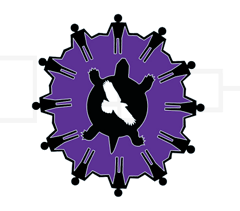Abstract
American Indian and Alaska Native (AI/AN) people experience trauma at disproportional rates compared to the general U.S. population. Despite highly supported evidence-based trauma treatments among majority groups, questions remain regarding whether they address culturally-based attitudes, values, and behaviors necessary to promote change and recovery within AI/AN communities. Minimal data exists on practitioner attitudes towards existing standards of care and areas for continued development. This study details the results of a national online survey of mental health practitioners (N = 103 providers) working with AI/AN trauma-impacted populations from a diverse range of clinical settings, theoretical orientations, and years of training through a mixed methods design. Results indicated that practitioner training characteristics (e.g., level of education, clinical experience, and confidence in using evidence-based practices) and cultural characteristics (e.g., ethnicity, identification with Western values) were significant predictors of evidence-based practice (EBP) attitudes. Additionally, overall attitudes toward EBPs were found to be a significant predictor of perceived need for culturally-informed EBPs, with 88% of practitioners reporting a lack of cultural sensitivity in current standards of care. These findings are presented within the context of efforts to increase the development of culturally-grounded models of healing for AI/AN communities and implications for clinical training, research, and dissemination of findings to help facilitate necessary policy change.
Recommended Citation
Knowlton, Charlie N. Ph.D. and Lafavor, Theresa Ph.D.
(2021)
"Attitudes Toward Evidence-Based Practices for Trauma-Impacted American Indian/Alaska Native Populations: Does the Role of Culture Even Matter?,"
Journal of Indigenous Research: Vol. 9:
Iss.
2021, Article 2.
Available at:
https://digitalcommons.usu.edu/kicjir/vol9/iss2021/2

